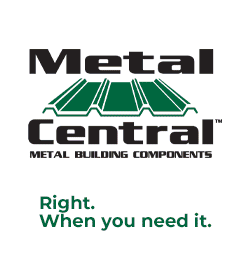UP TO THE MINUTE
Enhancing business efficiency through Standard Operating Procedures

By Cotney Consulting Group.
Why every business needs Standard Operating Procedures for success.
Standard Operating Procedures (SOPs) are indispensable tools for businesses aiming to streamline operations, enhance consistency and improve overall efficiency. SOPs provide employees with clear, concise instructions on performing tasks, reducing ambiguity and ensuring that all processes are executed correctly and uniformly. This article explores the importance of SOPs, how they can be effectively developed and their benefits across various aspects of a business.
Understanding Standard Operating Procedures
SOPs are detailed, written instructions that describe the specific actions necessary to carry out operations consistently and effectively. They are designed to achieve efficiency and quality output, serving as a benchmark for performance and ensuring that business activities are conducted uniformly across the organization.
Benefits of implementing SOPs
- Clarity and direction: SOPs provide a clear pathway for employees, detailing exactly what is expected of them and how tasks should be performed. This clarity helps eliminate confusion and increases efficiency.
- Consistency and quality: With SOPs, every process is standardized, leading to consistent quality in products and services. This reliability can significantly enhance customer satisfaction and trust in the brand.
- Enhanced productivity: By outlining the most effective way to perform tasks, SOPs help employees complete their duties more quickly and with fewer errors, reducing costs related to time and materials.
- Improved training and onboarding: SOPs serve as a valuable training resource for new employees, helping them to understand their roles and responsibilities quickly. This can shorten the learning curve and improve retention rates.
- Safety and compliance: SOPs are crucial in industries where safety is paramount. They ensure that all safety protocols are followed, reducing the risk of workplace accidents and ensuring compliance with regulations.
- Operational transparency: By documenting processes, SOPs provide transparency in operations, making it easier to audit and analyze workflow and pinpoint areas for improvement.
Key elements of effective SOPs
- Comprehensive detail: Each SOP should be thoroughly detailed yet easy to understand, with step-by-step instructions that leave no room for misinterpretation.
- Accessibility: SOPs should be readily accessible to all employees who need them, ideally integrated into daily workflows through digital platforms where they can be easily updated and disseminated.
- Regular reviews and updates: Business processes evolve, and so should SOPs. Regularly reviewing and updating SOPs ensures they remain relevant and effective.
- Inclusive development process: Involving employees in creating and revising SOPs can provide insights into practical challenges and promote wider acceptance and adherence.
- Visual aids: Incorporating graphics, photos and videos can make SOPs more engaging and easier to understand, particularly for complex tasks.
Developing and implementing SOPs
- Identify key processes: Start by identifying and prioritizing processes that need standardization, typically those that are critical to business operations or have high associated risks.
- Draft, review and test: Draft the SOPs with input from experts and stakeholders within the organization. Review and test these procedures in real-world scenarios to identify gaps or inefficiencies.
- Train and deploy: Once finalized, conduct comprehensive training sessions for all relevant employees. Ensure everyone understands the SOPs and how they fit into their daily tasks.
- Monitor and optimize: Regularly monitor the effectiveness of SOPs and seek feedback from employees. Use this feedback to optimize the procedures and resolve any issues that arise.
Conclusion
Standard Operating Procedures are more than just documents—they are foundational tools that help businesses operate more effectively, ensuring that every task is performed consistently and to the highest standard. By investing time and resources into developing robust SOPs, companies can significantly enhance their operational efficiency, reduce errors and provide a safer, more structured work environment. Implementing and maintaining effective SOPs is a worthwhile endeavor that can substantially improve productivity and profitability.
Learn more about Cotney Consulting Group in their Coffee Shop Directory or visit www.cotneyconsulting.com.






















Comments
Leave a Reply
Have an account? Login to leave a comment!
Sign In